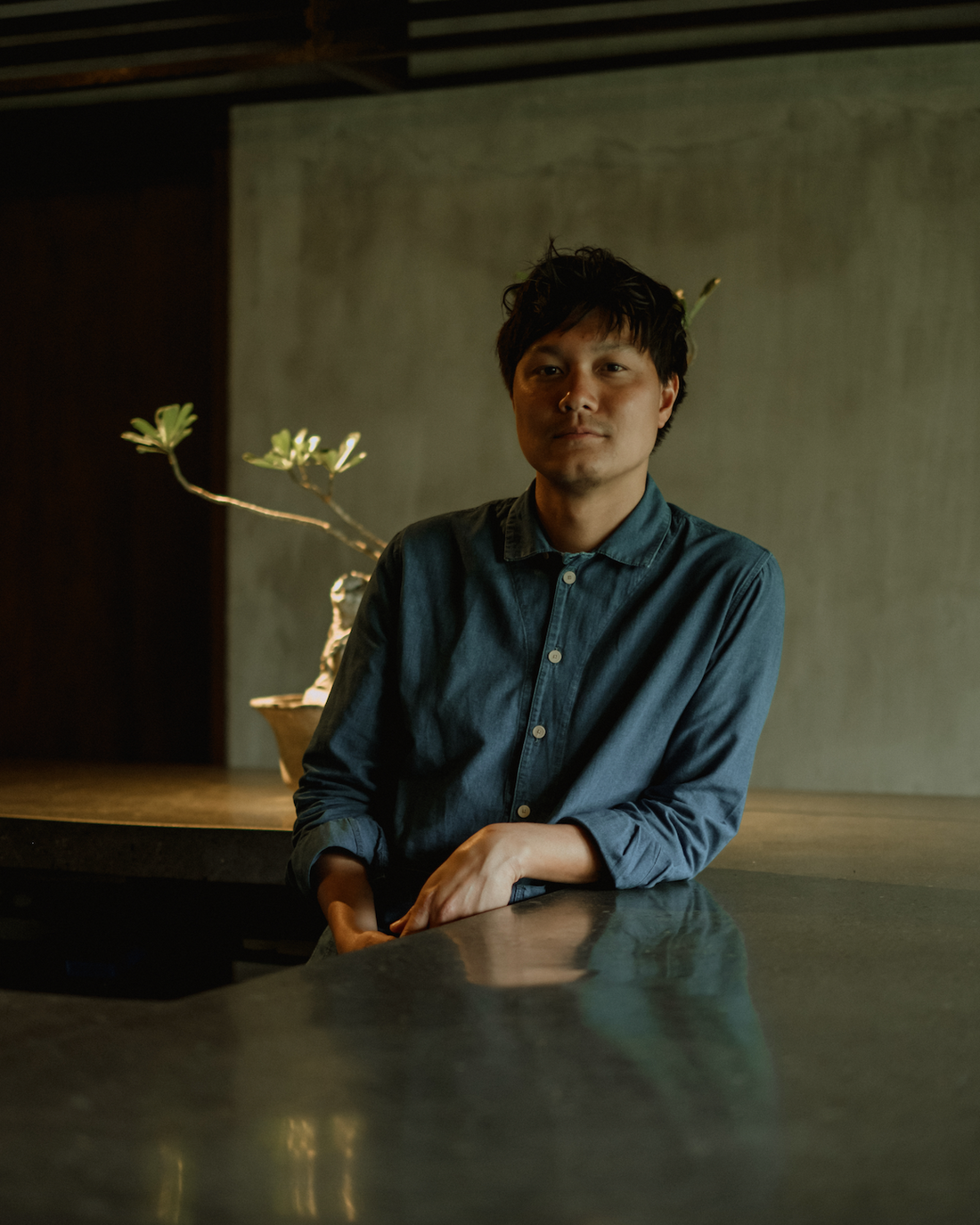With the calm and warm ambiance of the Sanggingan area. In one of the good bars in Ubud, we got a chance to gaze deeper into KAWI UBUD. We encountered one of the owners, Christian Tseng. At least 15 years of having a relationship and memories with this Island, seeing a lot of transformation small or big, here and there. Christian still finds this island intriguing in various ways.

Why did you and your partners choose "KAWI UBUD" for the bar name? Are there any stories behind the name?
The name of the bar came after doing a bit of research on Candi Gunung Kawi after a visit to the temple. After reading that the word ‘kawi’ was derived from the Sanskrit root word ‘ku’, meaning “poet”, everything started to click as the name of my partner’s bar in Bangkok is also ‘Ku’. Even though that ‘Ku’ has a different meaning, ‘bitter’ in Mandarin, we liked how meta it all was.
FYI before you come inside the bar, you gonna see patterns of block casting on the right side of the door. It spells ‘Kawi’ in each block, it’s a bit abstract and they rotate every block of letter.
Can you tell us about the KAWI UBUD journey?
I met my co-founders in New York where I was doing my undergrad and one of them was working at a bar. In 2016, they returned to Bangkok to open Ku Bar and I came home to Singapore to do my postgrad studies. Sometime around 2017, we reunited in Bali when I had them over to do cocktails for an event and that’s when we first entertained the idea of opening a cocktail bar in Ubud. From then on, we’ve met a lot of people, learnt a lot of things and tasted a lot of food and drinks. To put it simply, we encountered plenty of pleasant surprises, and naturally made a lot of mistakes. Overall, it was and it is totally worth it.
We saw you also manage a villa. What is your process for building a system within a team?
I think it’s important to build a system based on understanding and trust and this largely relates to communication. The first thing I did when I took charge was sign up for Bahasa Indonesia classes and I think it’s safe to say that I now have a direct relationship with each and every member of my team. That being said, even though there is an ability to communicate, not all things are communicated, especially grievances. That’s where trust comes in. Trust cannot be built overnight but I think we’re getting there through a couple of principles, like upholding fairness, giving everyone a voice, and standing up for anyone who might feel singled out, to name a few.

What are some interesting things that you have learnt from your work?
I guess I’ve learnt a lot about how to communicate effectively. I realised that most of my instructions before were actually rather complicated, which turned out to be the source of more misunderstandings, as well as frustration for both the receiver and I. If I can offer some advice, don’t bother asking the question, “do you know what I mean?” because the answer to that is very often, “yes” and at the same time, not very true.
What do you want for the future of KAWI UBUD?
For my team, I hope they learn and grow much to be confident enough to explore their own curiosities regarding their own careers and futures, aside from designing their own menus at the bar. For the bar, I just hope that we can be a place for everyone in and around Bali to be proud of. It’s simply a bar built in Bali for Bali.
Can you recommend and share with us some books that have changed your perspective on life?I have yet to consume anything that has managed to effect some sort of paradigm shift but these are some books that have drawn a teardrop or two:
I reread The Wild Palms by William Faulkner maybe once a year to relive the emotion of its last line, “Between grief and nothing I will take grief”.
Because I’m a great fan of the author’s use of language: Nine Stories by J.D. Salinger and Americanah by Chimamanda Ngozi Adichie really framed my time as a foreign undergraduate in New York City into perspective.
And when you said you like writing, how do you feel while writing? and what kind of things that you write usually?
What I really like reading into in literature is syntax. How writers arrange their words and phrases has a pretty significant impact on my own impression of the author. In that case, I suppose I have to admit that I can feel entertained and self-satisfied whenever I come up with a gem of a sentence, or at least when I pen something rather smart-alec-ish.
My writing career started at age eighteen with short stories, and then it mostly produced theses throughout my under and postgraduate studies. I scribbled a couple of poems and limericks after graduation but now I almost exclusively write long e-mails to people who respond with a curt ‘noted’.
How is life in Bali for you?
A bit of a backstory first, I’ve actually been back and forth between Singapore and Bali for more than fifteen years, except for some time in New York for my undergraduate studies. I only made the move to Bali more permanent five years ago.
The point first is that I’ve always loved Bali and life in Bali is always for a lack of a better word, great. What is more significant for me is how Bali, and life, has changed for me since I made the move. Before taking on the various responsibilities here, Bali was only a place to come for relaxation and fun, for paradise. But once you start working in paradise, paradise is lost. Once you start confronting various difficulties in a place, reality hits. And that’s not necessarily a bad thing. Once the idea of Bali as paradise is lost, Bali becomes more real. And because of that you’ll get a better understanding and appreciation for the place. To answer that question again more simply, for me life in Bali is something worth fighting for.


Is there anything in particular about Balinese culture that inspires you?
The spirit of community. When everyone gathers for ceremonies, and does things together leading up to these ceremonies, in spite of differing circumstances and demands of each individual. So yes, I suppose this collectivism from Balinese culture does inspire me to some aspect.
How do you feel about Ubud?
More so with the area where I live, it’s calmer and quieter compared to the popular areas in Bali. The traditional and cultural side is also less hidden and more pronounced, so I’m more exposed to and aware of the significance and regularity of certain ceremonies and practices. As an outsider, there’s a better opportunity to feel more acquainted and connected to Balinese culture in Ubud. On the other hand in the more touristy areas, you just stay and feel like an outsider.
Tell us 5 words that represent Bali for you
Promise, memory, family, pajak, terharu.
Can you share some recommendations with us, about your favorite areas, restaurants, or food in Bali?
I don’t go there a lot but I really like the sleepy coastal villages of Singaraja. If I had to live outside of Ubud, I would probably consider that.
An old favourite is Naughty Nuri’s, not the healthiest but I’ve been hanging out with my friends there from ages ago. You can also find the strongest martini on the island there.
My favourite Balinese dish is lawar and the regular go-to’s are Lawar Kambing Mang Raka and some warung, not sure about the name, in Blahbatuh for lawar babi.

Christian Tseng
Written by Tiarama
Photos by Lutfi Hanan

